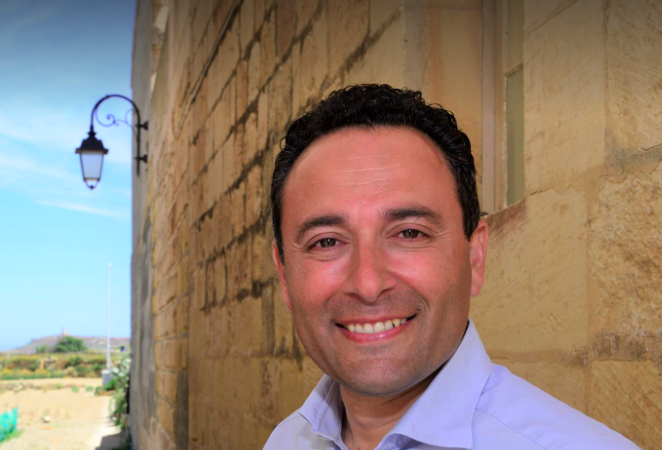Gozitan MP David Stellini has obstinately put himself in the middle of a political controversy. Asked why the Labour Party enjoyed such popularity the opposition MP put this down to the fact that the Maltese prioritised profit over values.
Stellini added that this contrasts with the rest of Europe, which he said is more value-driven.
Labour leader and Prime Minister Joseph Muscat was quick to pounce on Stellini’s comments and made political capital by dismissing the opposition as “classist.”
Writing in The Independent a few days later, Stellini tried to explain himself further.
“Maltese are like all other European counterparts no doubt about that, i.e. there are both profit and values-driven in Malta. I find that the way Maltese think politically reflects that of most European nations. So we do have values-driven politicians/voters in Malta and many of them also. But at this point in time most people want profit-driven politics. There’s no doubt about that. Otherwise how can we explain the election result?”
He went on to add that the Labour administration was devoid of principles and values and cited justice minister Owen Bonnici’s recent speech to MEPs discussing a rule of law report as an example.
“What Minister Bonnici is saying, in essence, is that the majority of the Maltese people approve of what the government is doing and to hell with rule-of-law principles.”
Stellini knows European institutions very well after spending more than a decade working for the European People’s Party in Brussels.
For a start, he’s absolutely right in saying that Europeans, Maltese included, are not a homogeneous people but perhaps he confused the EU’s founding principles with people’s values.
Most Scandinavian and central European countries were built on the Protestant work ethic. In ‘The Protestant Ethic and the Spirit of Capitalism’ Max Weber, one of the fathers of sociology, observed that Protestants, especially Calvinists, valued hard-work, profit and material success as signs of God’s favour. This, Weber argued, paved the way for modern capitalism.
The “capitalist spirit” is not restricted to Protestants and making money for profit’s sake is something which people of all religions and nationalities aspire to.
The notion that Northern Europe is less corrupt than Latin Europe has long been catalogued as a myth. The corruption scandal involving former German chancellor Helmut Kohl in the nineties and the 2007 financial crash confirmed that corruption and sleaze was not confined to Southern Europe.
However, there is some truth in the old adage that Southern Europeans are more prone to nepotism, bribery and systemic low-level corruption.
Just take a look at the mess Spain, Italy, Portugal and Greece found themselves in recent years. Its hard to argue that there is no difference between Northern and Southern Europe when it comes to accountability, transparency and fairness.
Historically, Northern Europe have enjoyed better environmental, labour and consumer protection standards. It was only thanks to European integration that the rest of the EU introduced stringent legislation protecting our health and our quality of life.
However, we are currently watching in silence as our countryside and our democracy are sacrificed on the altar of profit.
The easiest way to be successful in Malta is to throw the rule book out of the window. Jobs for friends and constituents, contracts for relatives and companies with intimate ties to those in power, cash handouts and planning permits for everyone (unless you’re a poor third-country national).
Does this only happen in Malta. Definitely not. Is it getting worse under Labour? Most probably yes. But this is not a matter of whether its only us or only now.
Its a matter of breaking up a system which has seen the establishment and the elite get richer and more powerful while the rest scramble for the crumbs. And there is no doubt that the most successful of the have nots are those that emulate the haves.
The temptation is strong. If politicians and big businesses can get away with not paying taxes, why not do the same? If the rich and powerful can bend the rules why not do the same? If everything has a price why not buy it?
We cannot do much about what is going on beyond our shores and we cannot do much about what happened in the past. But we certainly can do something about what is happening now. Giving up is not an option if we want to end social inequalities and environmental destruction.












